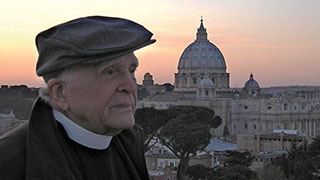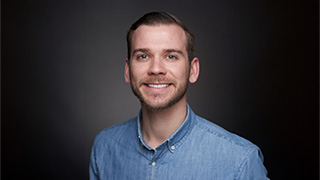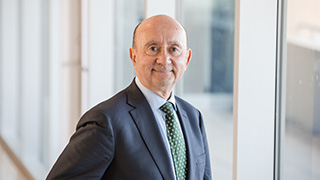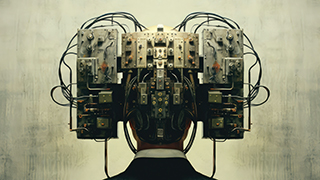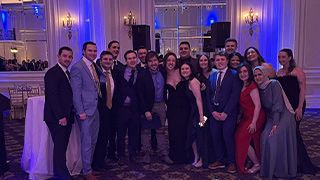Chesterton Institute Hosts Online Conference
Monday, October 5, 2020
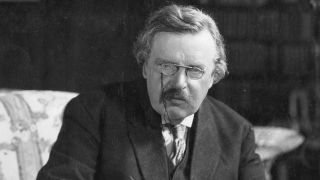
'The way to love anything is to realize that it may be lost.' Chesterton loved liberty and he devoted his life to ensuring that it be enjoyed by as many people as possible. But he also loved limits, the boundaries or fences that contain the things we hold dear, and, by containing them, make them even more precious. The truly free person is the person who knows when to stop.
This conference will explore Chestertonian liberty, then and now. In Chesterton's time, challenges to liberty came from the state, from the political class, from cultural elites, from petty bureaucrats, and, of course, from tyrants large and small. How did Chesterton answer the challenges? And are the challenges, and the answers, the same today as they were then?
About the speakers
Dermot Quinn, D.Phil. is Professor of History at Seton Hall University, a member of the Board of Advisors
of the G. K. Chesterton Institute for Faith & Culture and Editor of The Chesterton
Review. He was educated at Trinity College, Dublin and New College, Oxford, where
he was awarded a doctorate in 1986. He has written extensively on Chestertonian themes,
has authored three books The Irish in New Jersey: Four Centuries of American Life
(Rutgers University Press, 2004)(winner, New Jersey Studies Academic Alliance, Non-fiction
Book of the Year, 2005); Patronage and Piety: The Politics of English Roman Catholicism,
1850-1900 (Stanford University Press/Macmillan, 1993) and Understanding Northern Ireland
(Baseline Books, Manchester, UK, 1993 and many articles and reviews in the field of
British and Irish history.
Carlo Lancellotti is Professor of Mathematics at the College of Staten Island and a Faculty in Physics at the CUNY Graduate Center. Besides his scientific interests, he has also pursuit scholarly work in political theory, translating three volumes of works by Augusto Del Noce, a notable mid-twentieth century Italian political thinker. He has also written a number of essays on Del Noce, on the relationship between science and religion, and on contemporary culture. He has been a reader of Chesterton for many years and is a big friend and supporter of the G. K. Chesterton Institute for Faith & Culture.
About the sponsors
The G. K. Chesterton Institute for Faith & Culture is located at Seton Hall University, South Orange, N.J. Founded in 1974 by Father
Ian Boyd, C. S. B., its purpose is to promote the thought of G. K. Chesterton and
his circle and more broadly, to explore the application of Chestertonian ideas in
the contemporary world. The Institute's work consists of conferences, lecture series,
research, and writing. The Chesterton Review, founded in 1974, has been widely praised both for its scholarship and for the quality
of its writing. The journal was founded by Father Ian Boyd, C. S. B., and is edited
by Dr. Dermot Quinn, includes a wide range of articles not only on Chesterton himself,
but on the issues close to his heart in the work of other writers and in the modern
world. It has devoted special issues to C. S. Lewis, George Bernanos, Hilaire Belloc,
Maurice Baring, Christopher Dawson, Cardinal Manning, the Modernist Crisis, J. R.
R. Tolkien, Fantasy Literature, and a Special Polish Issue. The Chesterton Review also publishes one annual issue in Spanish and an annual supplement in Portuguese
and French. For information about the Institute or The Chesterton Review please contact [email protected] – website: www.shu.edu/chesterton.
Crossroads Cultural Center was established in 2004 by members of Communion and Liberation who shared an interest in the relationship between religion and culture. Crossroads seeks to explore the ways in which Christianity, by revealing the ultimate meaning of reality, gives new impulse to the human desire for knowledge. Our goal is to offer opportunities for education, making it possible to look with openness, curiosity, and critical judgment at every aspect of reality. Our ideals are summed up by the suggestion of Saint Paul: "Test everything; retain what is good." In our experience, the mark of a Christian culture is that it fosters interest in the full spectrum of reality, rather than focusing on a predetermined set of "religious" issues. A sign of its authenticity is the ability, or at least the desire, to encounter people from all walks of life, and to look for and appreciate everything that is true, good, and worthwhile in the various expressions of human life. These expressions include science, the arts, politics, journalism and the media, theology, history, economy, sociology, and education. Such openness and desire are the fruit of the education received in the Roman Catholic Church. http://www.crossroadsculturalcenter.org.
Categories: Faith and Service

